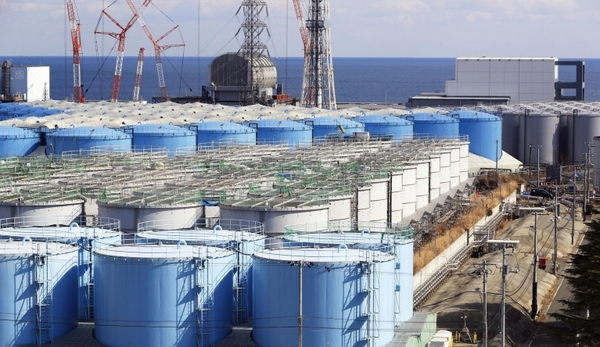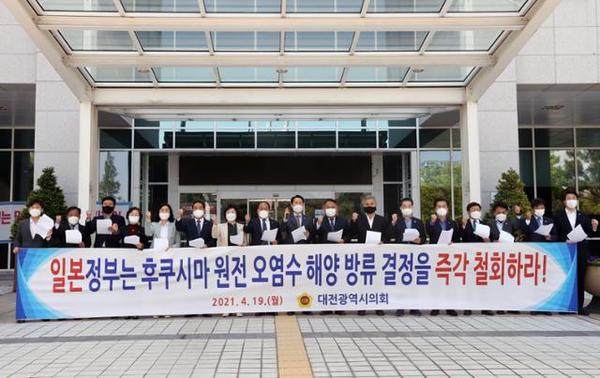At a Cabinet meeting in Japan on April 13, 2009, Japan officially announced the release of radioactively contaminated water from the Fukushima nuclear power plant. On March 11, 2011, radioactively contaminated water was generated by the magnitude 9.0 Great East Japan Earthquake, tsunami, and the Fukushima Daiichi explosion. Currently, the amount of contaminated water stored is about 1.25 million tons,
 ▲ Contaminated Water Tank in Fukushima
▲ Contaminated Water Tank in Fukushima which can fill Tokyo Dome, Japan's largest dome stadium. Japan planned to release a large amount of contaminated water into the sea for about 30 years from two years later. Japan says there is no way to store contaminated water in Fukushima every day, but discharging contaminated water into the ocean has too many risks, so there is a way to store it in solid form or secure more storage space before finding a better way. However, the government is reportedly pushing ahead with the release of contaminated water, ignoring concerns from the international community. Perhaps, because it needs more time and money to buy land and persuade residents. Japan announced that it would lower the concentration of tritium in contaminated water to one-seventh of the WHO drinking water standard. It is unknown how Japan drinks contaminated water and meets the water standards, although the treated water is also contaminated by more than 70 percent.
If contaminated water is released, the Pacific Ocean is directly affected. According to German researchers, the contaminated water in Fukushima reaches the coast of Jeju for the first time in seven months, and eight months later, the East Sea began to be contaminated. Riding by the westerly winds, this contaminated water will spread endlessly to the other side of the Pacific Ocean. As a result, not only the Japanese people but also the whole world focused on releasing radioactively contaminated water. In South Korea, a sit-in group for university students to stop the release of radioactively contaminated water was established. The groups and progressive groups held a press conference in front of the Japanese Consulate General in Jeju City on the afternoon of July 30 and stressed that there would be no compromise on the lives and safety of the people. They are concerned that the contaminated water in the nuclear power plant contains tritium, which can cause internal exposure and become a problem when it enters the body. It is nothing less than nuclear terrorism for all mankind to release the contaminated water from Fukushima into the world's waters. Not only them but some 250 environmental and civil society organizations in South Chungcheong Province strongly opposed the issue on the occasion of Earth Day on the 22nd.
 ▲ South Korea`s reaction to Japan`s radioactive release
▲ South Korea`s reaction to Japan`s radioactive releaseAbout 50 people, including the governor and representatives of environmental and civil society groups, issued a statement denouncing the Japanese government's decision to release radioactive materials from the Fukushima nuclear power plant. "Japan's attempt to release radioactively contaminated water without permission is an act of terrorism against the present and future of mankind.
As mentioned above, there is a growing number of opposition voices in Japan as well, too. Japanese fishermen insist that if contaminated water is safe, they should throw it away in Tokyo Bay instead. Japanese organizations are demonstrating, saying that they do not release contaminated water and do not pollute the sea.
Environmental organizations and the international community are increasingly concerned that the problem is a global problem and must be prevented for us not to destroy the environment further.
May 28, 2021 By Park Hyoin
다른 곳에 퍼가실 때는 아래 고유 링크 주소를 출처로 사용해주세요.


안녕하세요